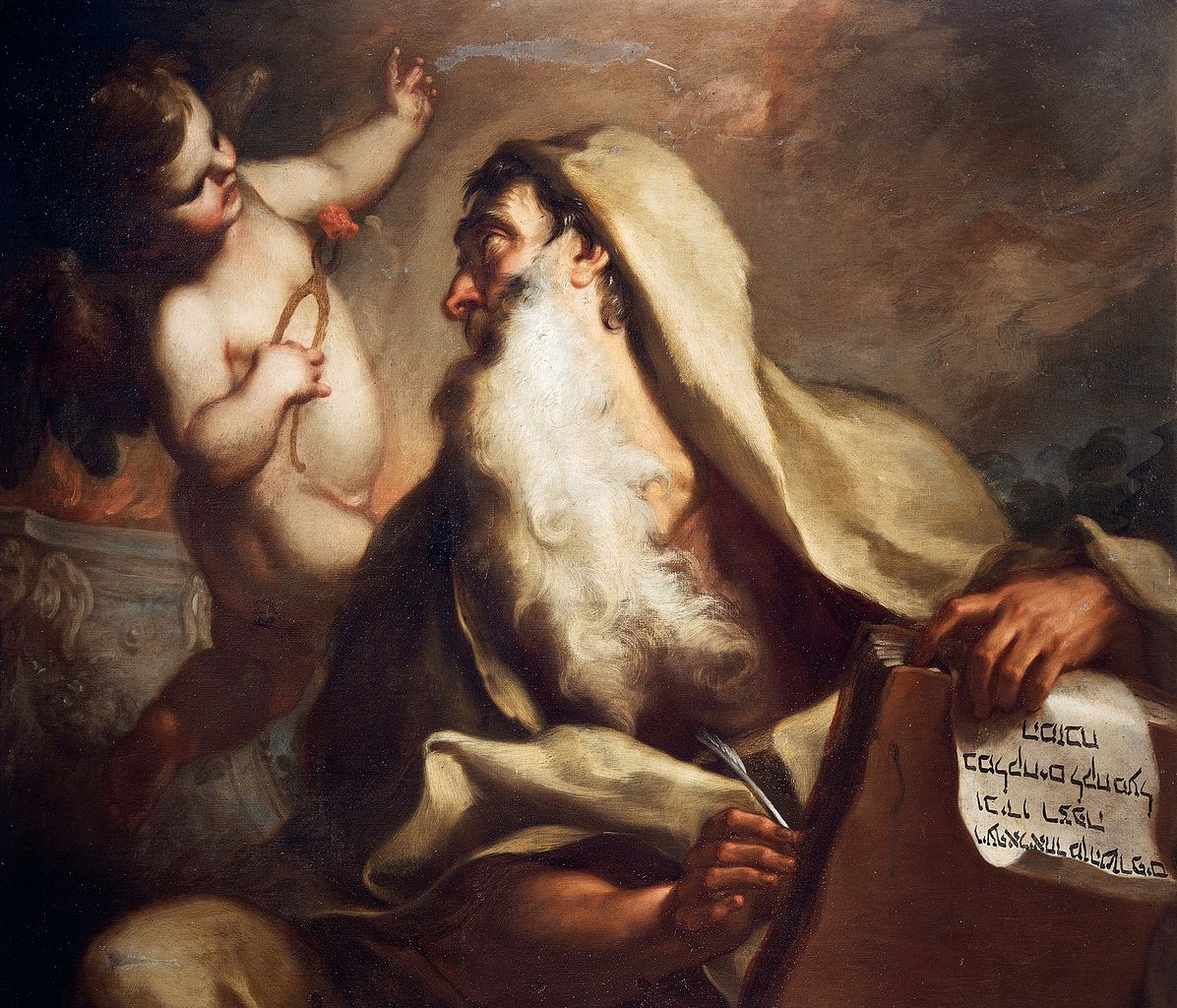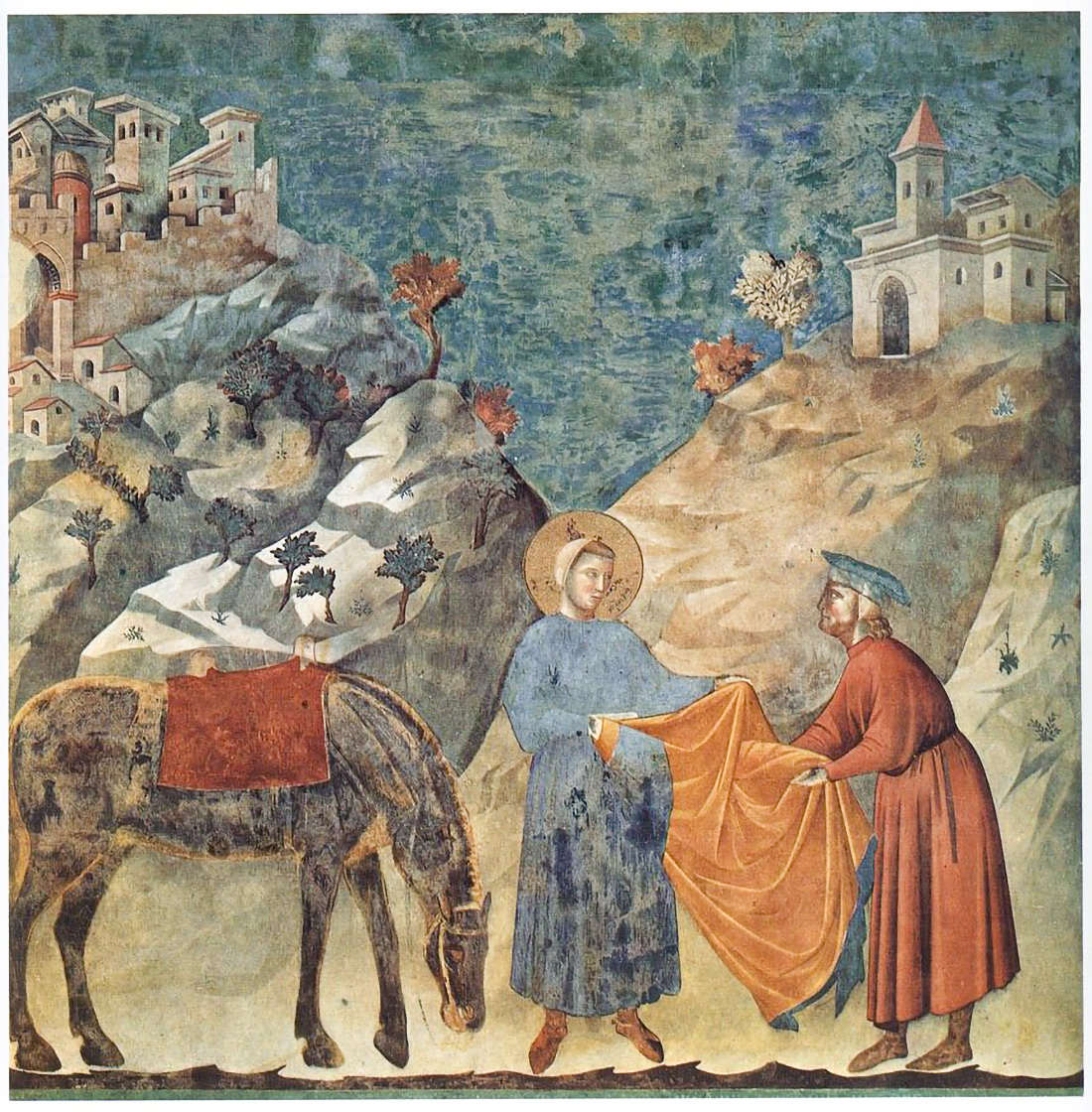Memorial of Saint Francis Xavier, Priest (Thursday in the 1st Week of Advent): Isaiah 26:1-6, Matthew 7:21, 24-27.
Today’s readings ask us to consider how we use the word “strong” when it comes to our faith life. It seems reasonable that we encourage one another to keep our faith strong, or, as George Michael famously sang, “you gotta have faith.” But, like that song, this sentiment is completely about us, about putting things in our power. Rather than preaching this gospel of self-empowerment, our scriptures tell us – over and over, from Genesis to the Book of Revelation – that “strength” is God’s. What’s in our power? Simply to recognize this and rely upon it.

Isaiah is clear: “A strong city have we; he sets up walls and ramparts to protect us.” The prophet portrays God as a diligent ruler who builds protective structures for His people. The space created by God is what is strong. The people abjectly rely on the strength of their ruler and his fortress to protect them: “Open up the gates to let in a nation that is just, one that keeps faith.” Isaiah uses the Hebrew word אֱמֻנִֽים (’ĕ·mū·nîm), which properly means “one who is trustworthy,” although it is commonly translated as “one that keeps faith,” as in “one who did not betray his faith.” Consider this: in the ancient world, faith in something was generally understood to come from concrete proof in reality. God’s work in the world and in the lives of the Jewish people was a palpable thing. How different from what it has come to mean today, i.e., belief in something without proof. So, what Isaiah is saying is that the strong city of God should admit people who are trustworthy, who live by His commandments and do His will. He is not saying to admit people who fabricate for themselves a belief-without-proof. This was inconceivable to people who observed God in everything around them and Who was central to their very history and existence. Far from the abstract word we use today, we might say that “faith” for ancient Jews was more akin to acting in concordance with expectations. In other words, “keeping faith” or “having faith” was adhering to God’s commandments and precepts, in other words, being trustworthy. “Being faithful” was demonstrating that you could be trusted by God not to betray Him or stray from Him. “Faith” was concretely observable.
“Trust,” on the other hand, was the word that had more in common with today’s understanding of “belief without proof.” Isaiah’s next line describes how the word trust was used: “A nation of firm purpose you keep in peace; in peace, for its trust in you.” Isaiah says that God protects his faithful people because they trust that He will come through for them. For the Jews, it’s not a question of whether there’s a God or not, it’s more a question of whether a person can trust in God’s intervention on their behalf. This clearly causes a bit of a problem in the “don’t put the Lord your God to the test” category. At issue, I think, is expecting God’s saving grace and protection in this world, in this lifetime. The prophets and, finally, Jesus Christ, clarify that God’s Kingdom is not the same as the world. Jesus repeatedly speaks of death as “sleep,” and emphatically points out that everlasting life happens after resurrection from this sleep/death. Put your trust in God, but don’t expect His actions to come about according to your timeline or in the way you expect.
And so our scriptures are full of the tension between trusting in God or trusting in something else in the world (money, power, our own intelligence, etc.). The problem is that humans live in a fallen state, temporarily separated from their Creator and longing to hear Him, see Him, feel Him. (We can begin to understand the divine genius behind the Incarnation – God’s loving us so much to be present to us in human form.) In our spiritual weakness, we stop trusting in the invisible One and start trusting in worldly things that give us immediate feedback and immediate satisfaction.

This is why Isaiah’s cry to his people is “Trust in the LORD forever! For the LORD is an eternal Rock.” And here we have it: the eternal rock, the strength, is the Lord. We need the urgings of the prophets because we are weak and tempted by the world. In acknowledgement of worldly temptations, Isaiah follows this with, “He humbles those in high places, and the lofty city he brings down … It is trampled underfoot by the needy, by the footsteps of the poor.” The measure of the world is wealth, and Isaiah’s words remind his listeners that this measure is false and will be overturned by God.
In the gospel reading, Jesus takes up Isaiah’s theme of God being the rock and the strength upon which we should rely. The first verse from St. Matthew: “Not everyone who says to me, ‘Lord, Lord,’ will enter the Kingdom of heaven, but only the one who does the will of my Father in heaven.” This should sound familiar – doing “the will of my Father” is what Isaiah says about a nation “that keeps faith.” Jesus tells us that actual faithfulness to the commandments and spirit of God’s law is what we are called to do in order to enter the Kingdom of Heaven. This is a call to practice what we preach, to not simply profess to believe in God without submitting to His will.
Next, Jesus reminds us of God’s strength being the only real, reliable strength for us. He uses the image of the rock: “Everyone who listens to these words of mine and acts on them will be like a wise man who built his house on rock. The rain fell, the floods came, and the winds blew and buffeted the house. But it did not collapse; it had been set solidly on rock.” This is an interesting little parable because through Christ the strength of God, the rock, becomes something we can work with and use. Let’s unpack this. In this parable, what we do in our lives is compared to the type of house we build. The foundation of this house is what makes the difference. If the foundation is rock, our house will not collapse. In Christ’s words, if we listen to his words and act on them, we can withstand storms and disasters, and our lives will continue (in the next life).
Jesus emphasizes acting on His words. In other words, living according to God’s will. The rest of the parable makes this clear:
And everyone who listens to these words of mine
but does not act on them
will be like a fool who built his house on sand.
The rain fell, the floods came,
and the winds blew and buffeted the house.
And it collapsed and was completely ruined.
It’s interesting to dig into this. Acting on His words seems to have a bolstering effect, a solidifying effect, making our foundation solid, like rock, instead of shifty, like sand. This action is a type of embodiment of God’s will – making it real and alive through us. And that is precisely Jesus Christ Himself! He is the example of the embodiment of God’s will, even more, the mystical Incarnation of God Himself into humanity. He is the pinnacle, the apex, of His own teaching, and by following His teaching we are able to share in this embodiment of God on earth. This is part of God’s inscrutable plan, that He infuses the world through His human creatures, renewing and healing all of creation through us.
And the stakes could not be higher. A life built on sand results in complete ruin. The eschatological implications are severe: no entry into the eternal Kingdom of heaven.

The picture we are left with nicely re-frames the great challenge of Christianity. We might think that trusting in our invisible God is the challenge – what we would call today “having faith.” But this intellectualizes what is actually a challenge of actions. In other words, we’re making a mental game out of something that is much more practical and within our reach (albeit no less difficult). The challenge Christ lays before us is acting in the world according to God’s will. Listening to His Word and acting accordingly. This means forgiving, being humble, giving away wealth, caring for others more than ourselves, avoiding sin, praising and thanking and fearing God every moment. These are all things we do, and what Christ and the saints teach us is that when we do them over and over, God becomes more apparent to us and trusting in Him and relying on Him become easier and easier.
Let’s remember, then, why Advent is a season of penance, almsgiving, and prayer. These are the actions we are called to do before we can enter the Kingdom of Heaven.
Thank you for your insights. What especially resonated with me was the reminder that God is in control, and that we need to recognize and rely on that.
Pingback: The Mystery, As We Live It - blind men healed